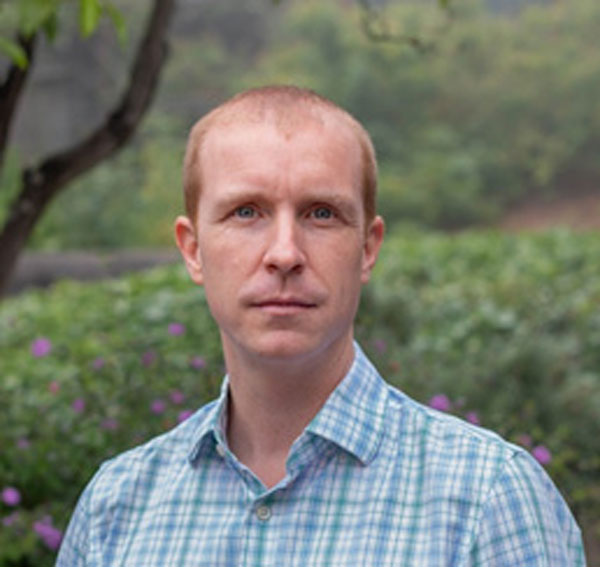Kevin Young admitted to Office of Science Early Career Research Program

Sandia computer scientist Kevin Young believes that he can improve the performance of modern quantum information processors, and now the DOE Office of Science has named him to its Early Career Research Program, awarding him a grant to continue his work.
The program, now in its 11th year, is designed to bolster the nation’s scientific workforce by providing support to exceptional researchers during the crucial early career years, when many scientists do their most formative work.
Under the program, researchers based at 17 DOE national laboratories will receive grants of at least $500,000 per year. The grants fund research for five years and will cover salary and expenses.
Kevin is one of 76 researchers across the nation to receive the award this year and among 26 colleagues from the national labs who have participated in the program, including three who work at the three NNSA labs.
“I am gratified by the confidence in my work expressed by the DOE Office of Science,” Kevin said. “Sandia has a long history of investment in quantum computing research, and I would not be able to pursue this work without the support of the many excellent scientists here at the lab.”
Kevin co-leads Sandia’s quantum performance laboratory and performs research focused on modeling, assessing and improving the performance of quantum computers. His winning proposal was titled, “Quantum performance enhancement.”
“I am very excited to see DOE’s investment,” said Sandia senior manager Amanda Dodd. “His research to enable reliable quantum computation is a crucial step on the path towards transformative improvements in scientific computing.”
Solving quantum computer failures
Kevin explained that the power of modern quantum computers is constrained by hardware errors that inevitably crash quantum programs.
“Quantum computers are fragile. And when they break, they can do so in diverse and complicated ways,” he said. “We need to characterize exactly how they fail, then we use that information to fix the system — or even design a better one.”
Although some of the errors in quantum systems are inevitable, many of the worst errors result simply because the hardware is improperly calibrated.
“There are materials properties that limit how well a given quantum computer could possibly perform,” he said. “But those limitations are almost never met in practice. Instead, it’s our inability to tune the system correctly that is holding quantum computers back. And this problem only gets harder as quantum systems grow larger. We need new classes of protocols and methods that can tune these devices and prevent them from drifting off their optimal performance.”
Kevin’s work will encompass four main directions: using advanced quantum characterization methods to build robust calibration protocols, developing adaptive methods that maintain performance despite drifting environments, customizing these methods to disparate quantum computing platforms, and building these tools into the lowest levels of a quantum computer’s control infrastructure.
“Quantum computing is a completely different paradigm of computing, and it’s only now coming into its adolescence,” he said. “This field thrives on daily interactions between pen-and-paper theorists and wrench-swinging experimentalists. We are constantly faced with diverse, challenging problems, and the Early Career Research Program ensures this work will move forward.”
“The Department of Energy is proud to support funding that will sustain America’s scientific workforce and create opportunities for our researchers to remain competitive on the world stage,” said Paul Dabbar, DOE under secretary for science. “By bolstering our commitment to the scientific community, we invest into our nation’s next generation of innovators.”